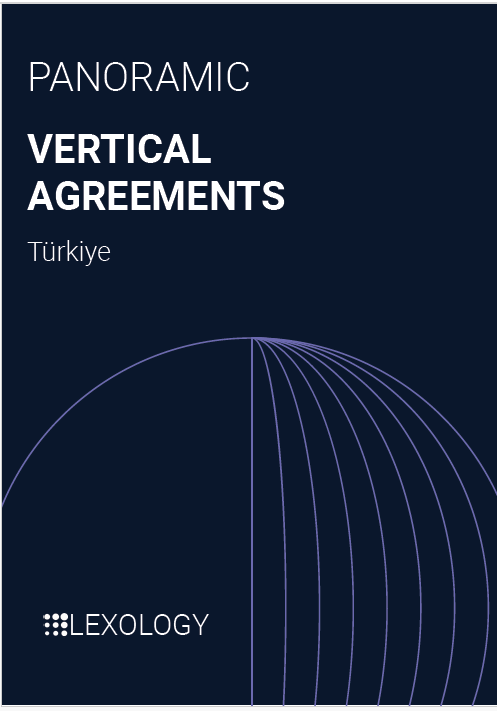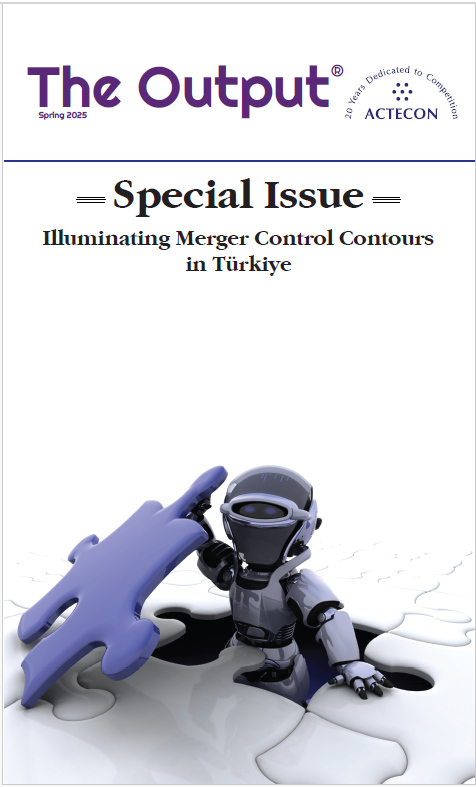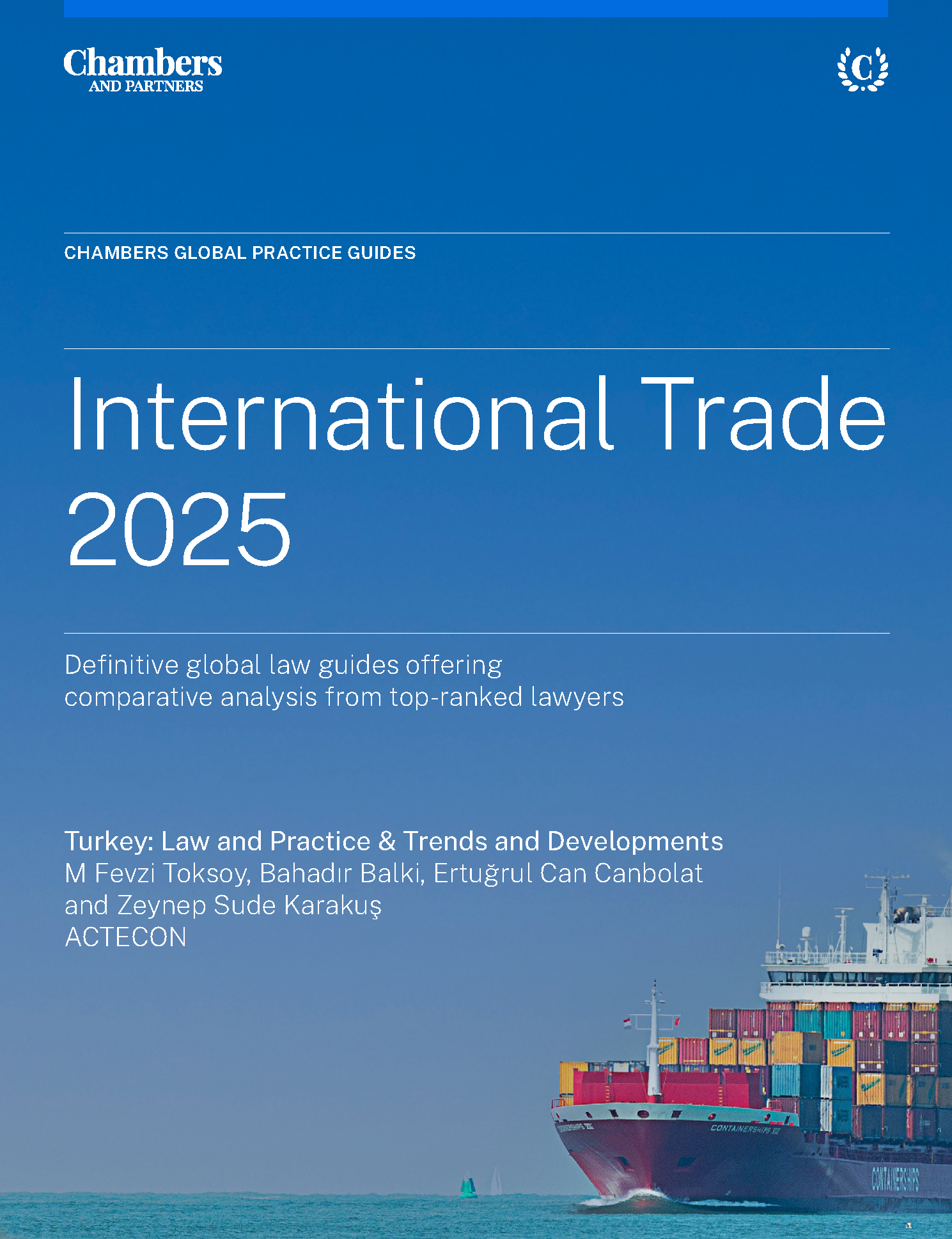No More Attorney-Client Privilege for Competition Compliance Programmes in Turkey, at Least for Now…
| International Trade

No More Attorney-Client Privilege for Competition Compliance Programmes in Turkey, at Least for Now…
Article by Barış Yüksel and Özlem Başıböyük
On 08.08.2018, the TCA had imposed an administrative fine of TRY 140 million (USD 29 million) to various companies controlled by the Enerjisa Group, which operate in the markets for distribution and retail sales of electricity within various regions in Turkey. During the on-the-spot inspection conducted in the premises of one these companies (namely Enerjisa İstanbul Anadolu Yakası Elektrik Perakende Satış A.Ş. ("AYESAŞ")), the TCA officials had seized a document that was prepared by AYESAŞ's lawyers during the course of a competition compliance programme as evidence. Due to AYESAŞ's objections, the relevant document was placed in a sealed envelope without being examined by the TCA officials.
AYESAŞ had requested the return of the document seized by the Turkish Competition Authority ("TCA") during on-the-spot inspection, asserting that the said document was prepared by an independent lawyer during a voluntary competition compliance program and that this document must fall within the scope of attorney-client privilege, rendering its seizure by the TCA unlawful. The TCA denied AYESAŞ's request1 and stated that the said document might be used as evidence in the investigation as it was not prepared for the purpose of exercising the right of defense within the scope of the ongoing investigation.
AYESAŞ initiated an action for annulment and the Ankara 15th Administrative Court ("Administrative Court"), which is the court of first instance, had annulled TCA's decision by holding that this document is covered by attorney-client privilege and that it may not be used as an evidence against AYESAŞ2.
The Administrative Court examined the legal framework and identified the relevant provisions in the law as follows;
the right to a fair trial enshrined in the Article 36 of the Constitution of the Republic of Turkey,
Article 36 of the Legal Profession Act No. 1136 which provided that lawyers shall not disclose information regarding their clients and further,
Article 130 of the Code of Criminal Procedure No. 5271 requiring a court order for a search to be conducted within the office of a lawyer, and
Article 15 of the Competition Act which states that the TCA may perform on-the-spot inspections within the premises of undertakings if it deems necessary.
Since there was no clear provision concerning the boundaries of the attorney-client privilege in competition law. Thus, the Administrative Court made an assessment by evaluating the universal principles of law and the EU case law, which were also taken into consideration by the TCA in former decisions. The Administrative Court held that only the documents that are prepared by independent lawyers who have no contractual employment relationship with the undertakings may benefit from such privilege to the extent that these are related to the use of the right of defense of the undertakings.
The Administrative Court stated that it was undisputed that the document titled "Enerjisa Audit Report" was prepared by independent lawyers. Hence, the main issue was to decide whether the said document, which contained the results of the competition compliance programme implemented by AYESAŞ's independent lawyers, was related with AYESAŞ's right of defence or not. The Administrative Court referred to the TCA's explanations in the decision, which constituted the subject of the case at hand. In the decision it was stated that a document which is prepared by an independent lawyer for the purpose of evaluating whether a certain agreement/conduct violates the Competition Act benefits from the attorney-client privilege whereas a document which is prepared for the purpose of explaining how the Competition Act may be violated does not.
Based on this distinction, the Administrative Court evaluated the contents of the "Enerjisa Audit Report" and stipulated that this document comprised the results of independent lawyers' examinations regarding the practices of AYESAŞ, a list of certain practices that may be deemed risky from a competition law perspective and recommendations to alleviate these risks. The Administrative Court then concluded that this document falls in the former category and thus benefits from attorney-client privilege. Therefore, the court annulled the TCA's decision.
The TCA appealed this decision and Ankara Regional Administrative Court's 8th Administrative Chamber ("Regional Court") has overruled the Administrative Court's decision3. The Regional Court's decision is of significance as it may become a precedent, particularly in terms of determining the boundaries of the attorney-client privilege in competition law investigations.
The Regional Court agreed with the Administrative Court in that two foregoing conditions shall be satisfied simultaneously in order for a document to benefit from the attorney-client privilege. However, it had different evaluations as to which documents are to be deemed within the right of defense. The Regional Court held that"Enerjisa Audit Report" does not fall within the scope of the right of defence as there was no ongoing competition investigation when the said document was drafted. After clarifying that the document was not a direct product of AYESAŞ's exercise of its right of defence, the Regional Court stipulated that the relevant document my not benefit from attorney-client privilege.
It is noteworthy to mention that the contents of an internal e-mail of AYESAŞ that was deemed as risky in the"Enerjisa Audit Report" as well as the independent lawyer's evaluations regarding this e-mail are directly quoted in the Regional Court's decision to show that the relevant document contains certain expressions which may lead to the violation of the Competition Act. In light of the foregoing, the Regional Court accepted the claims of the TCA and overturned the Administrative Court's decision.
It should finally be noted that AYESAŞ may appeal Regional Court's decision before the Council of State within thirty days. Once this process is finalized, it will probably draw a well-defined framework as to how the attorney-client privilege shall be applied in competition law investigations. If the Council of State agrees with the Regional Court, this may be detrimental for the rapidly growing tendency of the companies to engage in competition compliance programmes to increase their awareness and to create an institutional compliance culture. This would indeed be ironical since it was the TCA itself that promoted competition compliance programmes through its official websites and publicly declared, even in its decisions, that the adoption of such programmes by the companies is most welcomed.
Footnotes
1 TCA's decision dated 06.12.2016 and numbered 16-42/686-314
2 Ankara 15th Administrative Court''s decision dated 01.03.2018, numbered E:2017/412 and K: 2017/3045
3 Ankara Regional Administrative Court's 8th Administrative Chamber's decision dated 07.01.2019, numbered E: 2018/658 and K: 2018/1236







